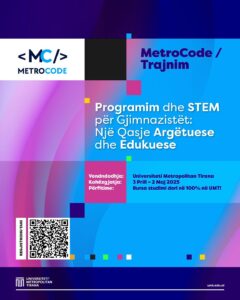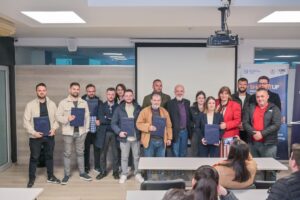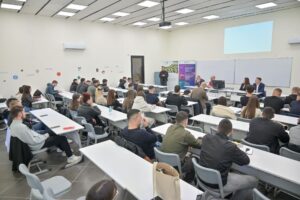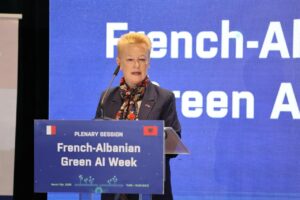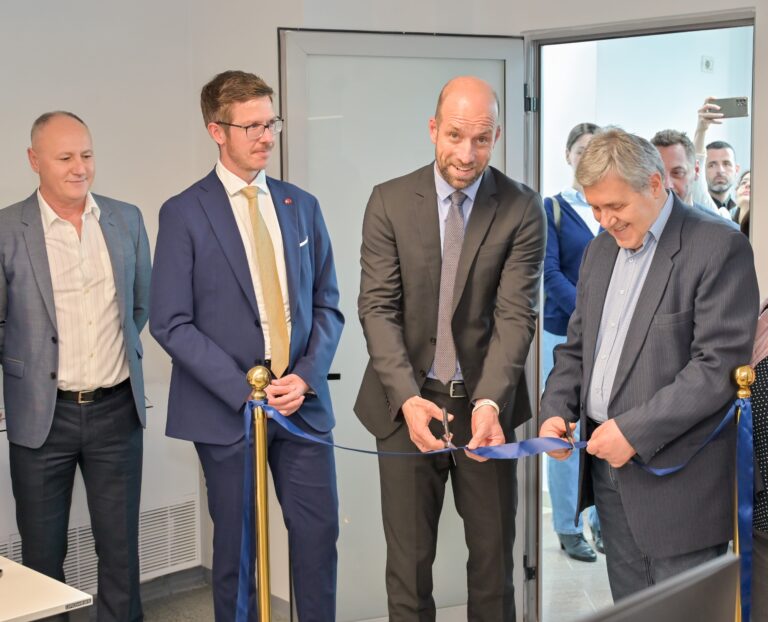
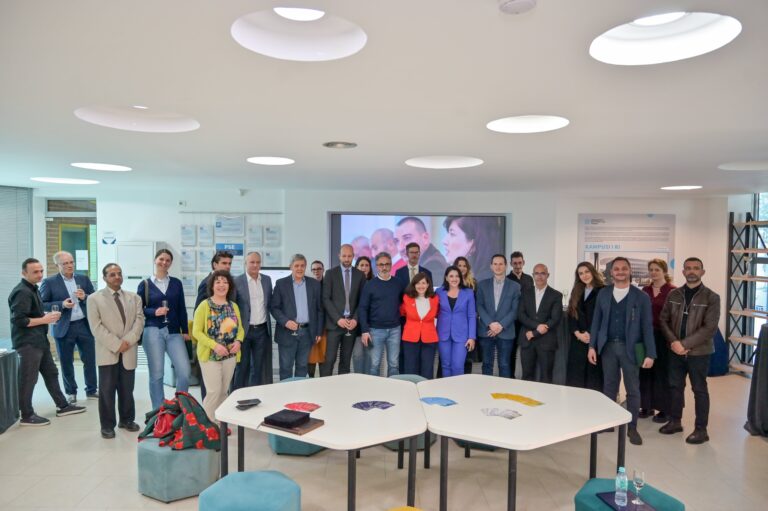
University Metropolitan Tirana marked a major milestone in vocational education with the official launch of its state-of-the-art Multimedia Laboratory, a project realized through the support of the Regional Challenge Fund (RCF). The inauguration ceremony was held at UMT’s campus and gathered government officials, international donors, partner enterprises, academic staff, and students.
The new Multimedia Laboratory is part of a broader initiative to modernize vocational education and address skill gaps in Albania’s growing ICT and tourism sectors. Funded by the RCF, the laboratory is equipped with cutting-edge technology aimed at fostering hands-on learning and enhancing student competencies in high-demand fields.
Prof. Dr. Nikolla Civici, Rector of UMT, opened the event with remarks highlighting the importance of industry-education collaboration. “This investment represents our shared commitment to bridging the gap between education and the labor market,” he said. “We are proud to contribute to a new era of work-based learning in Albania.”
The RCF, a funding mechanism supported by the German Federal Ministry for Economic Cooperation and Development (BMZ) and implemented by the Western Balkans 6 Chamber Investment Forum, aims to increase the competitiveness of businesses by strengthening vocational education systems through enterprise collaboration.
In Albania, the RCF has selected 21 projects over three competitive rounds. UMT’s project stood out for its strong consortium of partners and its focus on inclusive, skills-based training. The UMT-led consortium included Albanian Business Partner, Revo Hospitality Group, Maritim Plaza Hotel, Softmogul, and Albacademy, organizations committed to investing in the next generation of digital and tourism professionals.
Bridging Education with Industry Through Innovation
Together, the partners developed two cooperative training programs: Software Design and Tourism and Hospitality Management. These programs are designed to improve youth employability, close the skills mismatch, and create more opportunities for women and underrepresented groups in the workforce.
With RCF’s support, UMT was able to renovate its facilities, install high-end ICT equipment, and provide professional development for instructors and company mentors, ensuring a robust learning environment aligned with industry standards.
Dr. Iven Schad, Head of German Cooperation at the German Embassy in Albania, praised the initiative. “This project exemplifies how international cooperation can lead to tangible improvements in local education systems,” he said.
RCF Regional Coordinator Renato Vasili emphasized the fund’s role in catalyzing partnerships between schools and enterprises. “This is not just a project; it’s a model for how we can strengthen economic development through education,” he stated.
Dr. Emir Dzanic, UMT Vice Rector and Head of the Projects Office, reflected on the university’s growing role in shaping applied education. “We are building ecosystems of innovation, and this lab is a cornerstone of that mission,” he noted.
Partner enterprises were also present to express their support. Mr. Julian Demeti, CEO of Albanian Business Partner, spoke about the importance of aligning training with real-world industry needs. “We believe in investing in people, and this lab represents a pipeline of talent for the future of Albanian businesses,” he said.
The ceremony concluded with a guided tour and the first demonstration of the Multimedia Laboratory, which is now fully operational. Guests witnessed students and educators engaging with the new technology, signaling the start of a more interactive and future-oriented vocational education experience at UMT.
This lab is expected to become a national model for how vocational education can meet the demands of a fast-evolving digital and service economy, an essential step in building a skilled, competitive workforce in Albania and the region.

